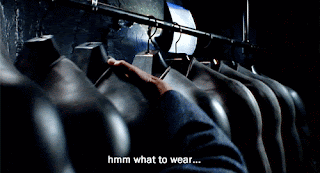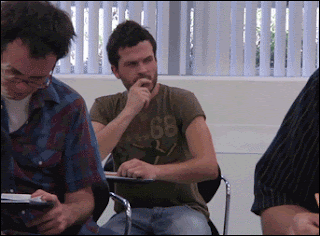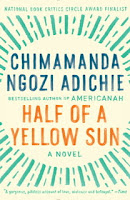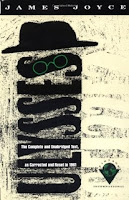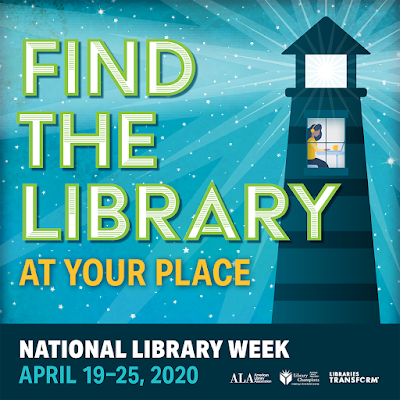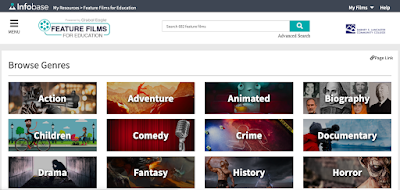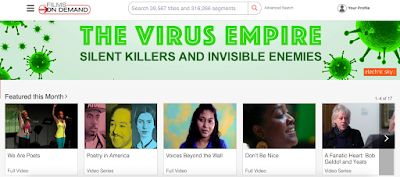After the recent killing of George Floyd by a police officer -- along with countless others before him -- the nation has been breaking out into protests regarding racism and police brutality. One of the most important things, too, that we can do to combat racism is to educate ourselves, and there is no time like the present to pick up a book and learn all that we can.
What effect does systematic racism have on the black community in this country? What does it encompass? What steps can we take, and what types of policies need to be put in place? We've put together a list of seven books that will help you to gain a better understanding of racism and the ways in which we can go about challenging it.
Of course, this isn't a comprehensive list. There are so many books, articles, and essays about racism in the U.S. Please feel free to leave us a comment with any other books that you have found helpful.

1. White Fragility: Why It's So Hard for White People to Talk about Racism by Robin DiAngelo
"'In this vital, necessary, and beautiful book' (Michael Eric Dyson), antiracist educator Robin DiAngelo deftly illuminates the phenomenon of white fragility and 'allows us to understand racism as a practice not restricted to 'bad people' (Claudia Rankine). Referring to the defensive moves that white people make when challenged racially, white fragility is characterized by emotions such as anger, fear, and guilt, and by behaviors including argumentation and silence. These behaviors, in turn, function to reinstate white racial equilibrium and prevent any meaningful cross-racial dialogue. In this in-depth exploration, DiAngelo examines how white fragility develops, how it protects racial inequality, and what we can do to engage more constructively."
2. How to Be an Antiracist by Ibram X. Kendi
"Antiracism is a transformative concept that reorients and reenergizes the conversation about racism -- and, even more fundamentally, points us toward liberating new ways of thinking about ourselves and each other. At its core, racism is a powerful system that creates false hierarchies of human value; its warped logic extends beyond race, from the way we regard people of different ethnicities or skin colors to the way we treat people of different sexes, gender identities, and body types. Racism intersects with class and culture and geography and even changes the way we see and value ourselves. In How to Be an Antiracist, Kendi takes readers through a widening circle of antiracist ideas -- from the most basic concepts to visionary possibilities -- that will help readers see all forms of racism clearly, understand their poisonous consequences, and work to oppose them in our systems and in ourselves."
3. Between the World and Me by Ta-Nehisi Coates
"In a profound work that pivots from the biggest questions about American history and ideals to the most intimate concerns of a father for his son, Ta-Nehisi Coates offers a powerful new framework for understanding our nation's history and current crisis. Americans have built an empire on the idea of 'race,' a falsehood that damages us all but falls most heavily on the bodies of black women and men -- bodies exploited through slavery and segregation, and, today, threatened, locked up, and murdered out of all proportion. What is it like to inhabit a black body and find a way to live within it? And how can we all honestly reckon with this fraught history and free ourselves from its burden?
Between the World and Me is Ta-Nehisi Coates's attempt to answer these questions in a letter to his adolescent son. Coates shares with his son -- and readers -- the story of his awakening to the truth about his place in the world through a series of revelatory experiences, from Howard University to Civil War battlefields, from the South Side of Chicago to Paris, from his childhood home to the living rooms of mothers whose children's lives were taken as American plunder. Beautifully woven from personal narrative, reimagined history, and fresh, emotionally charged reportage, Between the World and Me clearly illuminates the past, bracingly confronts our present, and offers a transcendent vision for a way forward."
4. The Color of Law: A Forgotten History of How Our Government Segregated America by Richard Rothstein
"Widely heralded as a 'masterful' (Washington Post) and 'essential' (Slate) history of the modern American metropolis, Richard Rothstein's The Color of Law offers 'the most forceful argument ever published on how federal, state, and local governments gave rise to and reinforced neighborhood segregation' (William Julius Wilson). Exploding the myth of de facto segregation arising from private prejudice or the unintended consequences of economic forces, Rothstein describes how the American government systematically imposed residential segregation: with undisguised racial zoning; public housing that purposefully segregated previously mixed communities; subsidies for builders to create whites-only suburbs; tax exemptions for institutions that enforced segregation; and support for violent resistance to African Americans in white neighborhoods. A groundbreaking, 'virtually indispensable' study that has already transformed our understanding of twentieth-century urban history (Chicago Daily Observer), The Color of Law forces us to face the obligation to remedy our unconstitutional past."
5. Biased: Uncovering the Hidden Prejudice That Shapes What We See, Think, and Do by Jennifer L. Eberhardt PhD
"How do we talk about bias? How do we address racial disparities and inequities? What role do our institutions play in creating, maintaining, and magnifying those inequities? What role do we play? With a perspective that is at once scientific, investigative, and informed by personal experience, Dr. Jennifer Eberhardt offers us the language and courage we need to face one of the biggest and most troubling issues of our time. She exposes racial bias at all levels of society -- in our neighborhoods, schools, workplaces, and criminal justice system. Yet she also offers us tools to address it. Eberhardt shows us how we can be vulnerable to bias but not doomed to live under its grip. Racial bias is a problem that we all have a role to play in solving."
6. So You Want to Talk About Race by Ijeoma Oluo
"Widespread reporting on aspects of white supremacy -- from police brutality to the mass incarceration of African Americans -- have made it impossible to ignore the issue of race. Still, it is a difficult subject to talk about. How do you tell your roommate her jokes are racist? Why did your sister-in-law take umbrage when you asked to touch her hair -- and how do you make it right? How do you explain white privilege to your white, privileged friend?
In So You Want to Talk About Race, Ijeoma Oluo guides readers of all races through subjects ranging from intersectionality and affirmative action to 'model minorities' in an attempt to make the seemingly impossible possible: honest conversations about race and racism, and how the infect almost every aspect of American life."
7. They Can't Kill Us All: Ferguson, Baltimore, and a New Era in America's Racial Justice Movement by Wesley Lowery
"Conducting hundreds of interviews during the course of over one year reporting on the ground, Washington Post writer Wesley Lowery traveled from Ferguson, Missouri, to Cleveland, Ohio; Charleston, South Carolina; and Baltimore, Maryland; and then back to Ferguson to uncover life inside the most heavily policed, if otherwise neglected corners of America today.
In an effort to grasp the magnitude of the repose to Michael Brown's death and understand the scale of the problem police violence represents, Lowery speaks to Brown's family and the families of the other victims' families as well as local activists. By posing the questions, 'What does the loss of any one life mean to the rest of the nation?' Lowery examines the cumulative effect of decades of racially biased policing in segregated neighborhoods with failing schools, crumbling infrastructure, and too few jobs.
Studded with moments of joy, and tragedy, They Can't Kill Us All offers a historically informed look at the standoff between the police and those they are sworn to protect, showing that civil unrest is just one tool of resistance in the broader struggle for justice. As Lowery brings vividly to life, the protests against police killings are also about the black community's long history on the receiving end of perceived and actual acts of injustice and discrimination.”
(All book descriptions from Barnes & Noble.)




